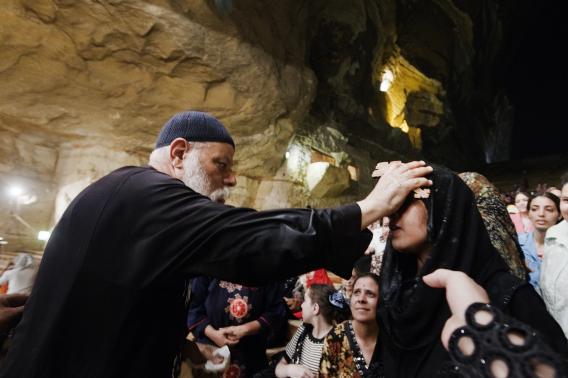Related slideshow: Protests Erupt at Multiple U.S. Embassies Across Islamic World
The California man who is believed to have produced Innocence of Muslims, the anti-Islam film that appears to have sparked the violent protests at U.S. missions in the Middle East and North Africa this week, has been described as a Coptic Christian.
So, what are Coptic Christians?
Coptic is an umbrella term for a handful of native Egyptian Christian groups that follow an ancient form of Christianity complete with its own language and rituals. About 10 percent of the Egyptian population as a whole identifies as Coptic, and 95 percent of those adhere to the Coptic Orthodox Church of Alexandria. The church traces its founding back to Saint Mark, and split from the rest of the Orthodox churches in the mid-5th century over a theological disagreement over the nature of Christ.
Copts generally trace their roots back to the ancient Egyptians, and the language of the church, Coptic, is the last iteration of the Egyptian language—though most Coptic Christians now speak Arabic.
Coptic immigration to the United States and elsewhere started en masse as a reaction to nationalization policies following the Nasser revolution in the 1950s, and increased again in the 1970s and early 80s. Copts fared relatively well under Hosni Mubarak, but have faced increasing persecution from fundamentalist Islamists since his removal from power in 2011. (For more on Coptic immigration to the United States after the Arab Spring, you can check out this Wall Street Journal article from last December.) By the Associated Press’ count, there are currently about 300,000 Coptic Christians living in the United States, with the largest clusters in New York, New Jersey, Boston, Los Angeles, Chicago, Detroit, Houston and Cleveland.
We should also note that the response to the film from Copts in Egypt and those who have moved to the United States has been a near blanket rejection of its message. The Coptic Orthodox Church’s Los Angeles Diocese, for one, issued a statement on yesterday condemning both the attacks in Libya that killed four American diplomats and the film itself. “The producers of this movie should be responsible for their actions,” the church wrote. “The name of our blessed parishioners should not be associated with the efforts of individuals who have ulterior motives.”
Related slideshow: Protests Erupt at Multiple U.S. Embassies Across Islamic World
